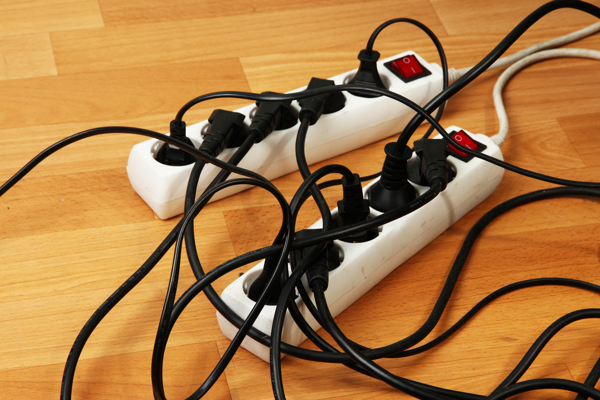After the holidays, it's fairly likely that you have new gadgets and devices to play with and to keep charged. In our plugged-in culture (we're still not quite there on wireless charging!), it's easy to feel buried in electrical cords for the bazillion different types of technology we own.
From cell phones to tablets and everything in between, it can be overwhelming. When you (or your child) needs to charge your phone or the latest e-reader, where's the charger? They all look the same, but unfortunately, they're not all universal. It can be a headache and cause a great deal of frustration (not to mention that when you find the correct charger, it's in a knot with the other hundred cords).
To help reduce the stress of searching for power cords, chargers and cables this holiday season and beyond, there are a few simple solutions. Once a system is in place, you'll find that sought-after power cord in seconds, and you won't have to enlist an army of helpers to untangle or look under sofa cushions.
Tame the Cord Dragon
To begin, sort your cords into categories. Round up the family and have everyone collect all the cords for each gadget. You'll be surprised at the pile that you find! Popular ones for most homes include: iPhone, Android, HTML, e-reader, tablets, cameras, etc.
Read More »




















